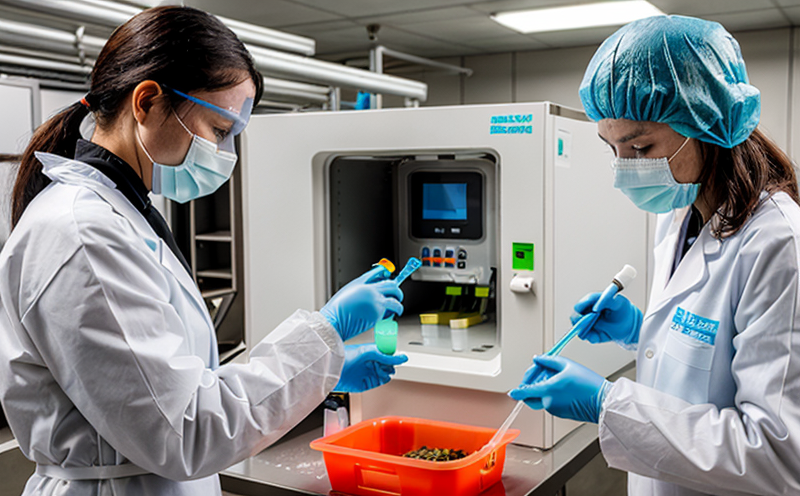ISO 13720 Enumeration of Lactic Acid Bacteria Test in Environment
The ISO 13720 standard provides a robust framework for the enumeration and isolation of lactic acid bacteria (LAB) from environmental samples. This method is essential for ensuring that the quality and safety standards are met across various industries, including food processing, pharmaceuticals, and biotechnology.
LAB play crucial roles in the production and preservation of fermented foods and beverages, as well as in various industrial processes. The enumeration of these bacteria helps to monitor microbial quality, control fermentation processes, and ensure compliance with regulatory standards. This test is particularly important for industries where spoilage or contamination could have significant economic impacts.
The ISO 13720 method involves a series of steps that include sample collection, preparation, inoculation onto selective media, incubation, and enumeration. The selection of appropriate growth media is critical to ensure accurate results. For instance, MRS (Milk Reconstituted Salt) agar is commonly used for LAB due to its ability to support the growth of these bacteria while inhibiting other microorganisms.
Once isolated, the colonies are counted and identified using morphological characteristics and biochemical tests. This process requires a high level of expertise to ensure accurate identification and enumeration. The method also includes controls such as positive and negative control samples to validate the accuracy of the results.
The significance of this test extends beyond mere compliance with standards; it plays a vital role in maintaining product quality, ensuring consumer safety, and mitigating risks associated with microbial contamination. In the food industry, for example, LAB are used as starter cultures in cheese, yogurt, and other fermented products. Accurate enumeration helps to optimize fermentation processes and ensure consistent product quality.
The pharmaceutical sector also benefits from this testing method by ensuring that medicinal products do not harbor harmful bacteria or contaminants. In biotechnology, the presence of certain LAB can influence the efficiency of industrial processes such as biofuel production or wastewater treatment.
Given the importance of this test in maintaining product quality and compliance with international standards, it is crucial to perform these tests in accredited laboratories that have the necessary expertise and equipment. Eurolab's state-of-the-art facilities and experienced microbiologists ensure accurate and reliable results, providing clients with peace of mind regarding their products' safety and quality.
Industry Applications
| Industry | Application |
|---|---|
| Food Processing | Monitoring the presence and quantity of LAB in fermented products to ensure quality. |
| Pharmaceuticals | Ensuring that medicinal products do not harbor harmful bacteria or contaminants. |
| Biotechnology | Optimizing industrial processes such as biofuel production and wastewater treatment. |
Eurolab Advantages
- State-of-the-art laboratory facilities equipped with the latest technology for accurate testing.
- Experienced microbiologists specializing in environmental and food microbiology.
- Dedicated ISO 13720-certified laboratories ensuring consistent, reliable results.
- A commitment to quality and customer satisfaction through rigorous internal controls and continuous improvement practices.
- Comprehensive reporting services including detailed analysis and recommendations for process optimization.
Quality and Reliability Assurance
- Positive control samples to validate the accuracy of the results.
- Negative control samples to ensure that the test is not detecting false positives.
- Detailed documentation of all steps in the testing process for traceability and quality assurance.
- Use of internationally recognized standards such as ISO 13720 to ensure consistency and reliability.





